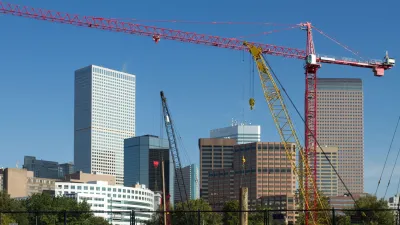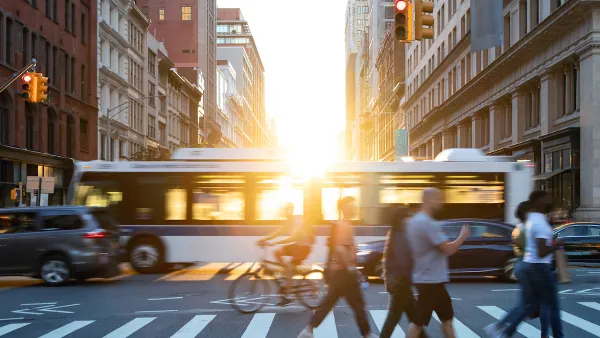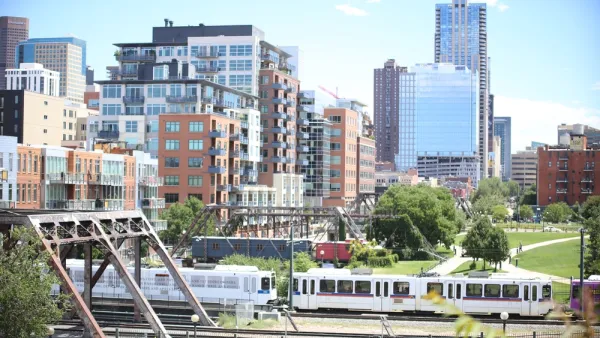If approved, the proposed regulations would require developers to implement policies to reduce single-occupancy vehicle trips for new developments.

A proposal before Denver's city council would "would require developers to implement specific programs to reduce the number of single-occupancy vehicle trips taken by tenants of new developments," writes Conor McCormick-Cavanagh in Westword. The plan calls for creating a set of transportation demand management goals that developers must consider when planning new construction. "For example, the proposal suggests, developers could offer subsidized transit passes for tenants or install showers, lockers and changing rooms for people who bike to work."
According to Alana Miller of the NRDC, who has been working on a transportation demand management proposal with the city's Department of Transportation and Infrastructure (DOTI), "there are benefits from a climate perspective, from air pollution, public health and affordability. It gets at quality of life and how Denverites have access to get around the city and go about their daily lives and do that in a more sustainable, accessible and affordable way." If approved, the rules would apply to all new commercial, residential, industrial, or office developments over a certain size.
The proposed rules intentionally give developers many options. "There’s tons of different transportation demand management strategies that can be implemented. And developers want to choose a strategy that makes sense for their building, their location and their tenants,' says Matt Kaufman of Urban Trans North America." But the plan's authors insist "this program does have teeth" and includes "compliance requirements and enforcement mechanisms." Other cities and counties such as San Francisco and Virginia's Fairfax County have adopted similar programs to reduce congestion and demand for single-occupancy car trips and improve opportunities for walking, biking, and public transit.
FULL STORY: Denver Wants New Developments to Help Reduce Cars on the Roads

Analysis: Cybertruck Fatality Rate Far Exceeds That of Ford Pinto
The Tesla Cybertruck was recalled seven times last year.

National Parks Layoffs Will Cause Communities to Lose Billions
Thousands of essential park workers were laid off this week, just before the busy spring break season.

Retro-silient?: America’s First “Eco-burb,” The Woodlands Turns 50
A master-planned community north of Houston offers lessons on green infrastructure and resilient design, but falls short of its founder’s lofty affordability and walkability goals.

Test News Post 1
This is a summary

Analysis: Cybertruck Fatality Rate Far Exceeds That of Ford Pinto
The Tesla Cybertruck was recalled seven times last year.

Test News Headline 46
Test for the image on the front page.
Urban Design for Planners 1: Software Tools
This six-course series explores essential urban design concepts using open source software and equips planners with the tools they need to participate fully in the urban design process.
Planning for Universal Design
Learn the tools for implementing Universal Design in planning regulations.
EMC Planning Group, Inc.
Planetizen
Planetizen
Mpact (formerly Rail~Volution)
Great Falls Development Authority, Inc.
HUDs Office of Policy Development and Research
NYU Wagner Graduate School of Public Service




























